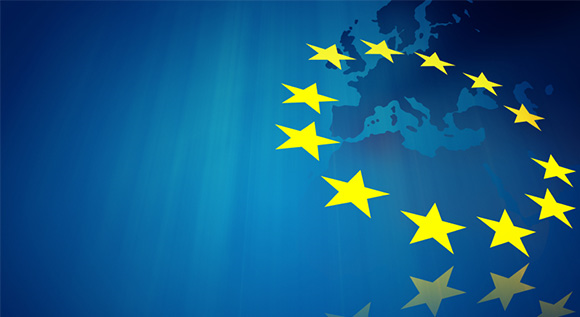A European energy transition
Auctions of renewables funding to be opened up to other EU Member States.
 © istockphoto/dem10
© istockphoto/dem10
The funding goes to those who ask for least. In future, this will also apply to bidders from abroad. What will change under the new legislation?
We want renewables to take on a greater role within our energy systems in Germany and Europe. This is why we would like players from other European countries to be able to submit bids for German renewables funding. By the same token, we want German operators to be able to benefit from the funding schemes set up in other countries as well. The specifics of how this is to work, and to what extent, are laid down in the new Cross-border Renewable Energy Ordinance. That's what the Federal Cabinet (Federal Government) decided in early June.
Pan-European race for funding
It will all start with solar, in this case with ground-mounted PV installations. This is how it will work. Up and down the country, areas will be selected for ground-mounted solar installations and auctions held for these plots.
The decision as to which supplier of PV power is granted the right to build an installation on which plot – and therefore eligible to receive funding for the electricity generated – is taken by way of competition. The process is based on the principle that it is up to operators themselves to calculate how much funding they think they need in order to turn a profit. The operator asking for the least funding wins.
In future, these auctions will also be open to operators from other European countries. To be more precise, this will apply for 5 per cent of the generation capacity auctioned in Germany, and as of 2017.
The requirements are as follows: Germany and the country in question must have signed a cooperation agreement under international law, the principle of reciprocity must apply, and the necessary infrastructure must be in place so as to allow for physical imports of electricity. This is how it will work in practice: Say, a Danish operator providing solar energy asks for less funding than his German competitor. This could mean that Danish installations could soon deliver solar power to Germany. In return, Denmark would have to open its funding scheme for renewables for German firms providing renewable energy.
As of 2017, this partial opening up of the funding scheme, which will first be tried out for solar power, is to be granted for other technologies as well, including wind turbines.
The energy transition is a pan-European project
Germany is opening up the auctions of renewables funding to other EU Member States. This shows quite clearly that the energy transition is a pan-European project. The fact that there are plans for an "Energy Union" shows that Europe is already planning for a cross-border energy system.
The Energy Union – For a consistent and secure energy supply in Europe
In future, the 28 EU Member States want to do more to support each other's energy systems – particularly where power and gas are concerned. The Energy Union, as it has been called, is one of the most ambitious energy projects ever to be tabled by the EU. It is also considered to be the most important joint European project in the field of energy policy.
The Energy Union is about better coordination between the 28 national regulatory systems that exist within the EU, which should result in greater consistency. The underlying idea is that it should be possible for power, gas and oil to freely cross national borders, thus ensuring a secure and affordable supply of energy for everyone in Europe.
Germany's Cross-border Renewable Energy Ordinance is another example of just how important Europe is for the success of the country's energy transition. We must not forget that the EU, too, has set out some ambitious energy and climate targets. Greenhouse gas emissions in Europe are to be cut by at least 40 per cent by 2030, compared to 1990. Renewables are to account for at least 27 per cent of Europe's energy consumption, and energy is to be used much more efficiently than is the case today.

